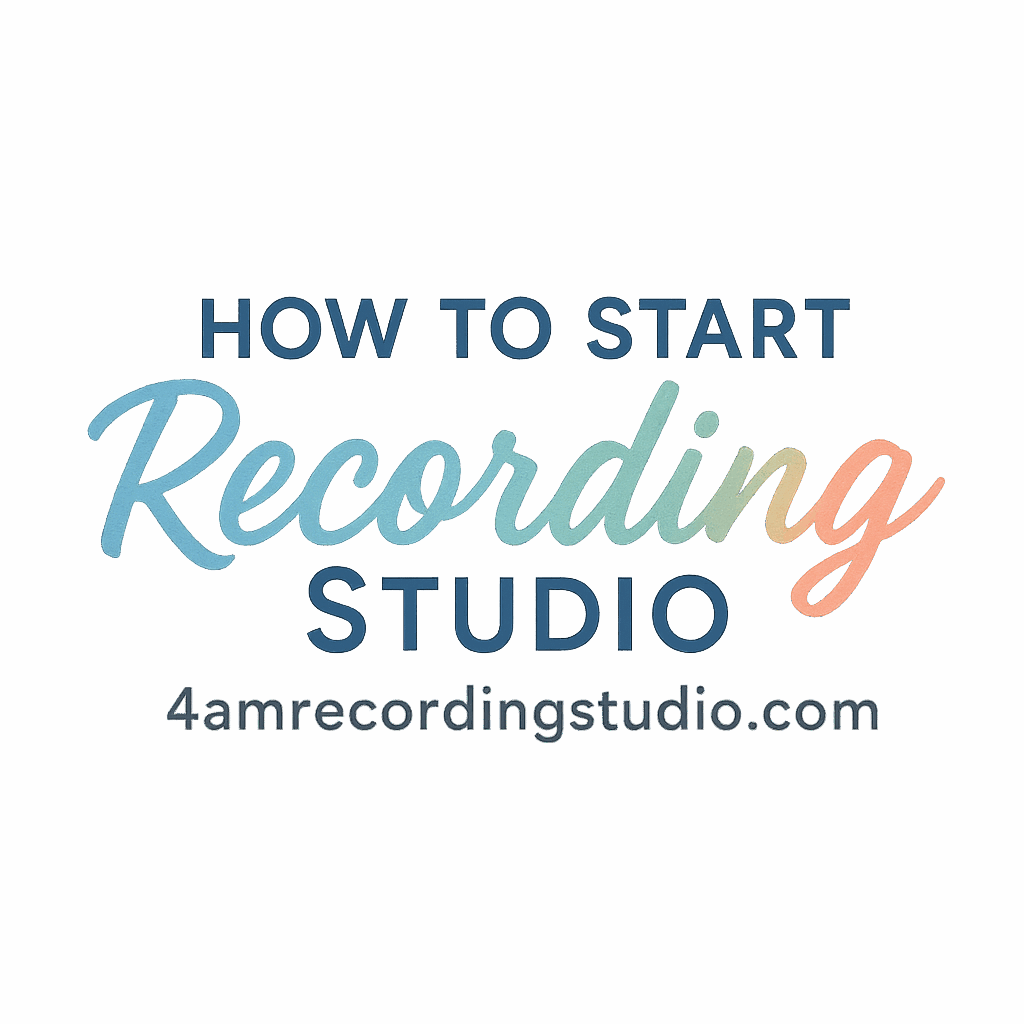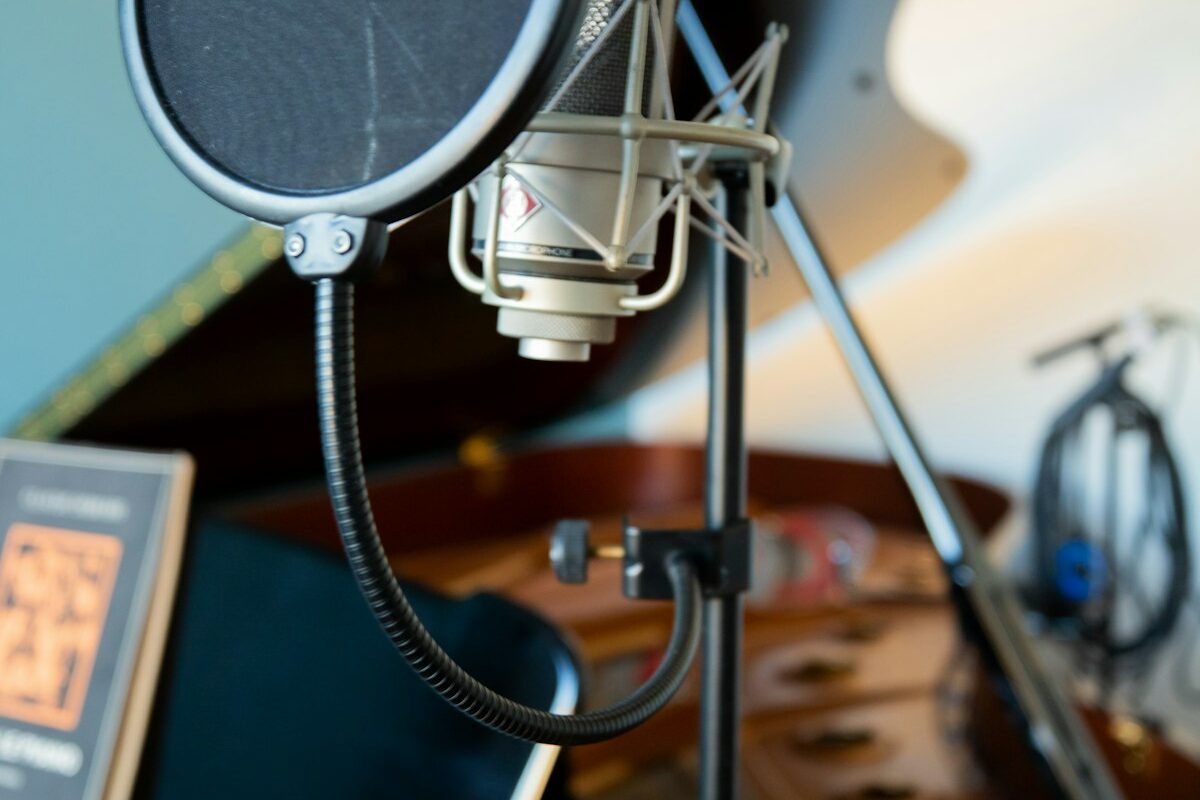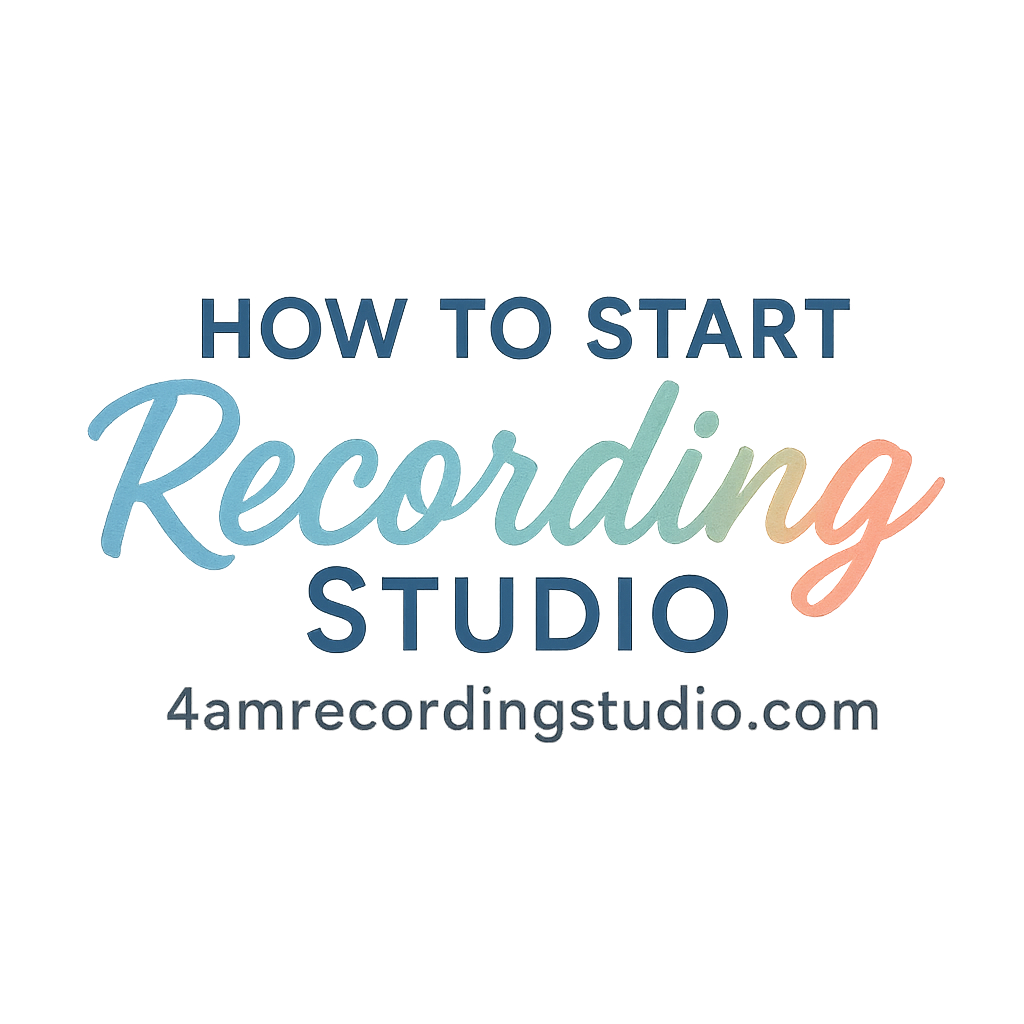Introduction: The Overlooked Backbone of Studio Protection
If you’re running a recording studio—whether it’s in your garage or a full-blown commercial space—one thing you can’t afford to skip is insurance. It’s not glamorous like your new preamp or your vintage mic, but when things go sideways, insurance could save your entire operation.
Let’s break down the top 9 reasons why insurance for your recording studio is not just a smart move—it’s essential.
And if you’re building your business from the ground up, don’t miss this guide on recording studio business planning.
1. Protecting Your Expensive Gear and Instruments
Studio Equipment Isn’t Cheap
Let’s be real—your gear is likely your biggest investment. From that pristine audio interface to your collection of synths and MIDI controllers, replacing any of it out-of-pocket would be a financial gut punch.
Explore our guide on must-have recording studio equipment and tools to see just how costly that gear list can get.
Insurance Covers Replacement Costs
With the right insurance, you’ll be covered if anything is damaged, stolen, or destroyed. No more sleepless nights wondering if that thunderstorm is going to fry your setup.
2. Natural Disasters Can Strike Anytime
Floods, Fires, and Storms Don’t Wait
You might think your studio’s safe in a basement or secure building—but mother nature doesn’t care. Fires, earthquakes, and floods have wiped out countless studios overnight.
Business Interruption Coverage Saves the Day
A good insurance policy doesn’t just cover gear. It also compensates you for lost income while you rebuild or relocate. That means no sudden revenue dips derailing your studio’s growth.
We go deeper into protection strategies in recording studio management and growth.
3. Coverage Against Theft and Vandalism
Theft Happens – Even in “Safe” Areas
Studios often store thousands of dollars in gear, making them prime targets. Break-ins can happen even in quiet neighborhoods.
Secure Your Assets and Peace of Mind
With theft coverage, you’re not left empty-handed. Insurance helps you bounce back fast and get back to making music.

4. Liability Coverage for Client Injuries
Accidents Can Happen in the Studio
Let’s say a client trips over a cable or falls off a wobbly stool. If they get hurt in your studio, you could be liable—even if it’s their fault.
Lawsuits Are Costly – Protect Yourself
Liability insurance covers legal fees, medical bills, and potential settlements. If you’re managing bookings, check out tips on recording studio scheduling to help you stay organized and safe.
5. Professional Liability: Mistakes Can Be Expensive
Missed Deadlines, Corrupted Files, or Session Errors
Stuff happens—maybe a corrupted file loses someone’s album or you miss a mastering deadline. Your clients could come after you legally for losses.
How Insurance Helps You Rebound
Professional liability coverage steps in to protect your reputation and your wallet when honest mistakes lead to big problems.
6. Studio Owner Peace of Mind
Focus on Music, Not Risks
Running a studio is already stressful. Insurance helps you breathe easy, knowing that one accident won’t ruin everything you’ve built.
7. Insurance Builds Client Trust and Professionalism
A Well-Insured Studio Reflects Credibility
Clients want to know they’re in a professional space. Having insurance shows you’re serious about protecting their time, sessions, and safety.
Clients Prefer Secure, Reliable Spaces
Want more trust? Check out our advice on recording studio marketing and branding to build a standout reputation.
8. Coverage for Remote and Mobile Setups
Protecting Equipment On-the-Go
Many producers and engineers work on-location. Whether it’s a live gig, a film shoot, or a mobile session, that gear is at risk in transit.
Working at Events or Remote Sessions
Insurance can cover mobile setups too—just make sure your policy includes off-site protection.
9. Meeting Lease or Partnership Requirements
Many Commercial Leases Require Insurance
If you’re renting your studio space, your landlord likely requires proof of insurance. It’s often non-negotiable.
Protecting Partners, Clients, and Collaborators
Some collaborators won’t work with uninsured studios. Show them you’re the real deal with professional coverage.
Also, browse resources on setting up your studio space for more pro-level insights.
Choosing the Right Insurance Plan for Your Studio
General Liability vs. Professional Liability
General liability protects against physical incidents. Professional liability covers intellectual and service-based mistakes. Many studios need both.
Property and Equipment Insurance Essentials
Ensure your gear is listed in the policy, from your controllers to your instruments. Inventory matters.
Cost of Insurance vs. Cost of Losing Everything
Think of It as an Investment, Not an Expense
Insurance may seem like another monthly bill, but compared to the cost of losing your business overnight, it’s peanuts.
And if you’re focused on income, check out our tags for earnings and income to learn how studios grow wealth wisely.
How to Get Started with Studio Insurance
Finding a Policy Tailored for Creative Businesses
Look for insurers that specialize in small businesses or creative workspaces. Don’t just buy generic coverage.
Checklist Before Signing a Policy
- Does it cover theft, fire, and natural disasters?
- Are mobile setups included?
- What are the deductibles?
- Does it cover liability and legal costs?
Don’t forget to keep your studio organized and document all gear for claims.
Final Thoughts
If you’ve poured your time, money, and soul into your recording studio, it only makes sense to protect it. Insurance isn’t a luxury—it’s a necessity. It keeps your doors open, protects your reputation, and allows you to sleep better at night.
Before disaster hits, be proactive. Consider insurance not as a burden but as a crucial part of your studio’s foundation.
And if you’re still setting things up, start from the basics here: Recording Studio Setup Basics.
FAQs
1. Do I really need insurance if I run a home studio?
Absolutely. Even home-based studios face risks like theft, fire, or client injuries.
2. How much does studio insurance typically cost?
It varies, but you can expect anywhere from $300 to $1,000 annually depending on coverage and equipment value.
3. Can I bundle my studio insurance with my home insurance?
Not usually. Most homeowners’ policies won’t cover business gear. Separate business insurance is recommended.
4. What kind of insurance covers my gear on the road?
Look for inland marine policies or mobile equipment coverage for on-the-go protection.
5. Will insurance cover lost files or session data?
Some professional liability policies may cover this. Always read the fine print.
6. Can I insure vintage or custom gear?
Yes, but make sure it’s appraised and documented for full coverage.
7. How can I make my studio more insurable?
Secure entrances, keep inventory records, and maintain safety standards. This can lower premiums and increase coverage options.


